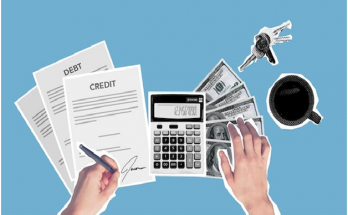In today’s financial landscape, personal loans have become a popular tool for managing various expenses, from consolidating debt to funding home improvements or handling unexpected costs. But with so many options available, how do you determine if a personal loan is right for you? In this guide, we’ll break down the essentials of personal loans, including their benefits, types, and what to consider before applying.

What is a Personal Loan?
A personal loan is a type of unsecured loan that offer you with a lump sum of money which you repay over time, typically with fixed monthly payments. Unlike a mortgage or car loan, which are secured by the property or vehicle you are purchasing, a personal loan doesn’t require collateral. Instead, lenders base their decision on your creditworthiness, income, and other financial factors.
Why Consider a Personal Loan?
- Debt Consolidation: The most common reasons people take out personal loans is to consolidate high-interest debt, such as credit card balances. By consolidating multiple debts into a single loan, you can potentially reduce your overall interest rate and simplify your monthly payments.
- Major Purchases or Expenses: Personal loans can help cover significant expenses like home renovations, medical bills, or wedding costs. They offer the flexibility to borrow a substantial amount and repay it over time, making it easier to manage large expenses.
- Building Credit: Responsible use of a personal loan, such as making timely payments, can positively impact your credit score. This can be beneficial for future financial activities, like applying for a mortgage loan.
Different Types of Personal Loans
- Fixed-Rate Loans: With a fixed-rate personal loan, the interest rate remains constant throughout the loan term. This predictability can make budgeting easier since your monthly payments won’t fluctuate.
- Variable-Rate Loans: These loans have interest rates that can change over time based on market conditions. While they might start with a lower rate than fixed-rate loans, your payments could increase if interest rates rise.
- Secured Loans: Although less common for personal loans, some lenders may offer secured personal loans where you pledge collateral, like a savings account or certificate of deposit, to back the loan. This can sometimes result in a lower interest rate.
- Unsecured Loans: Most personal loans are unsecured, meaning they don’t require collateral. Lenders rely on your credit history and financial situation to determine your eligibility and terms.
What to Consider Before Applying
- Credit Score: Your credit score plays a significant role in determining your loan’s interest rate and terms. Generally, a higher credit score can help you secure a lower interest rate.
- Loan Terms: Personal loans come with varying terms, typically ranging from 1 to 7 years. Consider the length of the loan and how it affects your monthly payment and total interest paid over the life of the loan.
- Interest Rates and Fees: Shop around and compare rates from different lenders. Pay attention to any fees, such as origination fees or prepayment penalties, which can impact the overall cost of the loan.
- Monthly Payment Affordability: Ensure that the monthly payments fit comfortably within your budget. Stretching your finances too thin can lead to missed payments and negatively impact your credit score.
- Purpose of the Loan: Clearly define why you’re taking out the loan and how it will benefit you. Avoid using personal loans for non-essential purchases or expenses that don’t contribute to your long-term financial health.
How to Apply for a Personal Loan
- Check Your Credit Report: Review your credit report for accuracy and address any issues before applying. A good credit score can increase your chances of approval and help you secure better terms.
- Compare Lenders: Research various lenders, including banks, credit unions, and online lenders. Compare interest rates, fees, and loan terms to find the best option for your needs.
- Gather Documentation: Lenders typically require documentation such as proof of income, employment details, and identification. Prepare these documents in advance to streamline the application process.
- Submit Your Application: Once you’ve selected a lender, complete their application process. Be honest and thorough with the information you provide.
- Review Loan Offer: Carefully review the loan offer, including the interest rate, repayment terms, and any fees. Make sure you understand the total cost of the loan before accepting.
Final Thoughts
Personal loans can be a valuable financial tool when used wisely. They provide flexibility and can help you manage various expenses more effectively. However, it’s crucial to approach them with careful consideration and a clear understanding of your financial situation. By evaluating your needs, comparing options, and managing the loan responsibly, you can make the most of this financial resource and work towards achieving your financial need.



